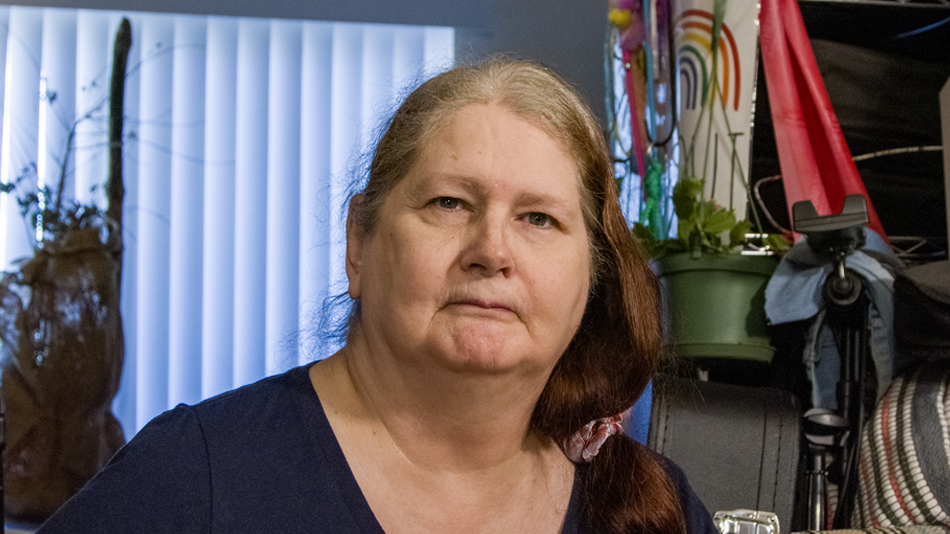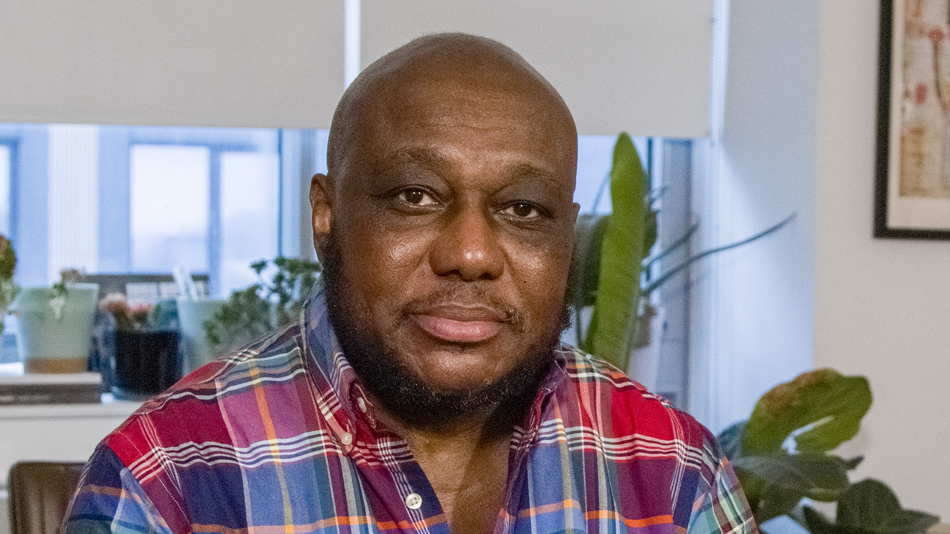Hi, my name is Sam Davis and I’m from Washington DC.
It all started when I was 11 years old and I first experienced my horrific menstrual cycle. I was out on a Sunday afternoon at church with my mom and my sister, and I went to the bathroom. And it was just blood everywhere and I didn’t have a tampon… I didn’t have a pad. I didn’t know what to do and I was just really just nervous about what my body was going through.
Going through puberty was really horrific, and it was those moments of developing breasts and having to wear a training bra and being reminded by my mom that I had to put on a bra, that I couldn’t go out inside without having anything on… it was just really disheartening for me. Years went on, I got older, I graduated high school. Of course, you have those notions when you just tell people you’re queer or people call you a lesbian. That was something safe to be identified as. But deep down in my heart, I always knew that there was something else.
I just turned 21 and I was seeing a therapist and we were talking about healthy relationships and setting boundaries. And she asked me if I was in a relationship and I was like, “Yeah, I am.”
And she was like, “Who is he?”
And I was like, “Um, there is no ‘he.’ I actually have a girlfriend.”
And she just stopped and looked at me for about two seconds and was like, “I never would have thought you’d be that type of person.”
And I was like, “What is that type of person?”
And she was like, “Well, one of those gay people.”
And I was like, “What do you mean by one of those gay people?”
And she’s like, “Oh, you’re a successful black person. I don’t… I didn’t… I would never take you as being gay.” It was really hurtful because I built up a really good rapport with this person and then I trusted them with my feelings and my emotions, but I couldn’t bring my whole self to therapy. So what’s the point of going?
It was around the age of 25, where I had the language and the access to information to realize that, Hey, you’re not a lesbian. You are queer, but you might be trans.
My depression was really… really bad in just not having a good support system – with not just my friends. I had a mother… my mother’s never been someone who’s been good with showing or displaying emotions. But anytime you brought up anything LGBTQ+, it would always be those people.
I really started to spiral in a deep, dark depressive state. And to the point where I even tried to take my own life because I was so unhappy and just miserable with not being able to be my true self. I knew that the people around me would be my biggest downfall if I didn’t leave.
So it was one of those moments where you see a perfect job opening and you don’t believe it. And I found one here in Austin and I was like, Well, I have nothing to lose. They saw something great. And I got the job. They flew me down here. I got hired on the spot and within probably four weeks, I moved my whole life to Austin, Texas.
When I got here, I found a great community of people who had resources, who were trans, queer, gender non-conforming… and I… I was like, Wow, like, this is it. This is where I belong.
So after a few months I was able to find a therapist and I started to talk to them more and more about me wanting to transition and me being comfortable enough with myself and being in a space where I don’t have any family around me. I don’t have my old friends. It’s just me and these new great people I’ve met and myself, so why not?
So I made an appointment at Planned Parenthood. I canceled the appointment about three times. So after the third cancellation and I was just like, You know what? You’re going to go to this appointment, you’re going to go through it, and you’re going to do it. So I spent about an hour in the back talking to the doctor, just weighing out the pros and cons. What were the expectations? The timelines of what would happen with my body, what would transpire.
After asking the doctor a thousand and one questions, she finally came back in and laid out all the needles and the syringes, and I’m sitting there like, “What is that?”
And she was like, “Oh, this is a needle that you will be using to inject yourself.”
And I was like, “Whoa, whoa, whoa. This is very long. It’s like an inch and a half, and I have to put this in my body by myself?”
And I was nervous. I was like, “I don’t know if I can commit to doing this every week.” And I’m like, “This needle, it’s not going to get any smaller.” And I’m like, “In my thigh of all places…”
But she was like, “There are people who inject it in their butt.”
And I was like, “Okay, thigh is fine. I’ll take my thigh. Not going to complain.” But after that first needle went through, and it was pretty quick, she was really good actually, I felt like a weight had been lifted off of me. Like everything that I’ve been waiting for, everything that I knew that I could be doing, was happening. And it was just one of those moments where you’re just like, Ah ha! So this is what happiness feels like. This is what freedom can actually feel like.
That was four years ago, and where I’m at today… I’m in a great place mentally. Physical changes – I have facial hair. Never thought this would come in. I was able to afford getting top surgery, which was another great thing that I didn’t think would be able to happen.
What I think a lot of people forget is that in this journey, you not only learn a lot about yourself, you unlearn a lot of things. What you think you liked, what you think you loved, that can change. Your attraction can change. The dreams or aspirations you thought were so meaningful can totally go left and that’s okay.
I feel like I’m exactly where I’m supposed to be. And I think if I could tell that 11 year old me anything, I would say don’t let your family determine who you are. You are your own person. They give you the tools and resources to grow, but at the end of the day, you decide who you want to be.








Share